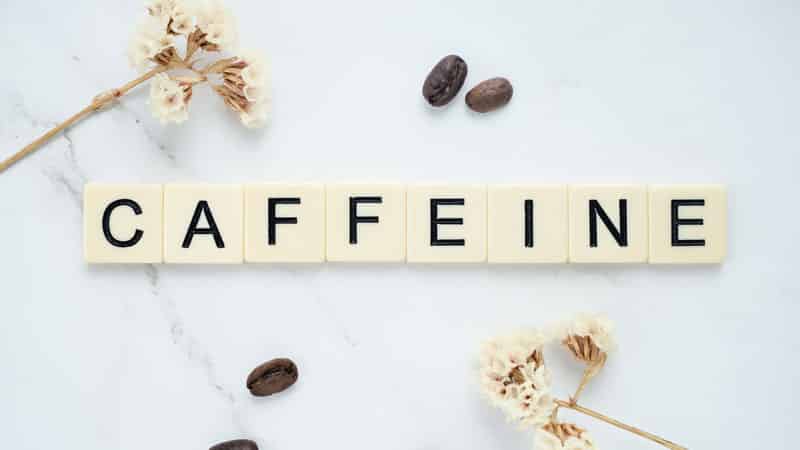Why coffee makes you poop is as varied as the coffee itself. Some of them are related to how it activates the opioid receptors in the GI tract. Others have to do with how it affects the motor activity of the colon. Some researchers have even suggested that coffee might be responsible for releasing gastric acids. Whatever the reason, coffee is not a good idea if you are looking for a natural remedy for constipation.
Activates opioid receptors in the GI tract
Studies show that coffee can help stimulate bowel movement in some people. In one study, men who drank coffee after eating a meal experienced faster food exit from their stomach and small intestine. Coffee may trigger bowel movements because it has certain compounds that activate opioid receptors in the GI tract. If you find that you have frequent urges to poop, it could be that you’re allergic to dairy creamer. In that case, you should avoid dairy creamer and monitor your symptoms for a few days to see if you have any problems.
Stimulates motor activity of the colon
One recent study suggested that coffee can stimulate motor activity in the colon within minutes of consumption. This effect was similar among people who drank caffeinated and decaffeinated coffee. However, caffeine had a slightly more substantial stimulative effect on the colon in decaffeinated coffee than in caffeinated coffee. Further research is needed to fully understand the impact of coffee on colonic motor activity. Although the effects of coffee on colonic motor activity was the same, people with different bowel movements responded differently to both caffeinated and decaffeinated versions.
Recent studies have shown that drinking regular black coffee following an abdominal operation can increase the rate of recovery from the surgery. While the cause of this effect remains unclear, regular coffee consumption has been linked with a reduction in the time required to regain colonic motility. The stimulating effects of coffee are most likely due to caffeine, which antagonizes the adenosine receptors in the intestinal wall. However, decaffeinated coffee is more expensive than its caffeine-free counterparts.
There are several potential reasons for coffee’s beneficial effects on the digestive tract. Besides helping reduce the risk of constipation, coffee also stimulates cholecystokinin secretion, an enzyme released by the pancreas and gallbladder. In addition to stimulating bile secretion, coffee also contains enzymes that digest carbohydrates and lipids.
Coffee has also been shown to decrease the incidence of postoperative ileus, which is a common postoperative complication after surgery. In addition, this coffee consumption also reduces the risk of postoperative intestinal paralysis. This means that coffee consumption after surgery has the potential to reduce hospital stays and postoperative pain and discomfort. These combined effects lead to an enhanced recovery. And finally, coffee can help reduce the risk of postoperative ileus, increasing postoperative costs.
In a study that included people undergoing laparoscopic colectomy, caffeine treatment improved early recovery from postoperative ileus. The results were statistically significant. Moreover, coffee increased bowel motility. The study also showed that coffee reduced the risk of suitable colon tumors, though it did not affect the incidence of these tumors. Furthermore, the study results were not significantly different among coffee drinkers and control patients.
Stimulates the release of gastrin

Caffeinated coffee is known to increase serum gastrin levels. It is important to remember that coffee does not cause heartburn, but it may increase the condition’s risk. In animal studies, coffee consumption is associated with increased serum levels of gastrin, which is crucial for gastric acid secretion. The roasting products of coffee induce the release of gastrin, so which can cause gastrointestinal discomfort.
High gastrin levels are linked with several conditions, such as atrophic gastritis and pernicious anemia. In some people, gastrin increases the risk of developing stomach ulcers and may even contribute to the development of certain types of cancer. However, the connection has not been definitively proven. But the benefits of coffee can’t be overstated. A few simple tips can help you get the most out of this health supplement.
In recent studies, the effects of caffeine on the gut-brain axis are being studied. A study from the University of Michigan found that acute coffee consumption significantly increased sAA activity and gastrin levels. However, coffee consumption did not affect self-reported levels of stress and anxiety. However, critical caffeine consumption was found to increase BP in healthy subjects. And these benefits may help you feel better as well.
Coffee has a more complex effect on gastric acid secretion than previously thought in human subjects. This effect is partially mediated by bitter taste receptors, expressed in the mouth and several extraoral sites. The bitter-masking compound homoeriodictyol inhibits caffeine’s effects on GAS in humans. It is possible that caffeine-induced gastric acid secretion can be beneficial for treating gastroesophageal reflux disease or peptic ulcers.
Activates gall bladder to release bile
Coffee is known for its stimulating effect on the gallbladder. It increases the release of cholecystokinin, a hormone produced in the duodenum in response to food intake. Cholecystokinin triggers the gallbladder to contract, releasing bile and pancreatic enzymes. While this effect is beneficial for people with healthy gallbladders, coffee consumption may worsen gallstones and lead to inflammation.
A person’s gallbladder is a 3 to 4-inch (7-10 cm) muscular sac located under the liver. It helps break down fats during digestion. It contains bile salts, water, and cholesterol, which can pack together to form gallstones, ranging from a grain of sand to a golf ball. Around 15% of adults have gallstones. These are harmless but can signify a more serious underlying health problem.





